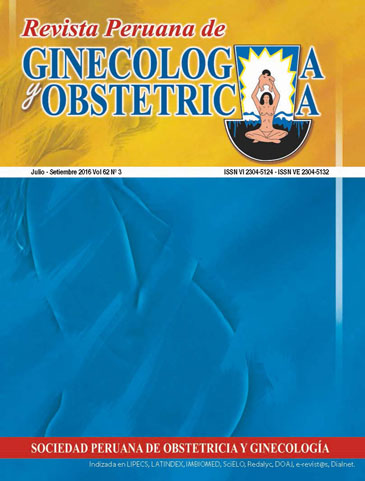Adolescent pregnancy in Jalisco Mexico: a view from social marginalization.
DOI:
https://doi.org/10.31403/rpgo.v62i1915Abstract
Objective: To analyze the sociocultural conditions, prenatal and obstetrical care, and data of the newborn, in pregnant young women residing in municipalities with very high and very low marginalization in Jalisco, Mexico, in 2014. Design: Quantitative, descriptive cross-sectional study. Institution: Jalisco Health Secretariat. Participants: Adolescents residents of both highly and very low marginalization municipalities. Methodology: Birth certificates of 140 adolescents residing in highly marginalized municipalities (Group 1) and 21 004 residing in municipalities with very low marginalization (Group 2) in Jalisco, Mexico, and who delivered a child during 2014, were reviewed. Main outcome measures: Univariate analysis of social and cultural conditions, prenatal and obstetrical care, data of the newborn. Results: From 28 178 births, 140 (0.5%) adolescents belonged to highly marginalized births (Group 1) and 21 004 (74.5%) occurred in adolescentes of very low marginalization adolescents (Group 2). The average age in Group 1 was 17.1 years, 18.5% were 15 years or less; 41.4% had elementary school or care, the mean number of pregnancies was 1.35; 20% did not receive prenatal care, the mean number of consultations was 3.1, 91% had normal delivery, the average newborn birth weight was 3 032.10 grams. The second group’s mean age was 17,5 years , 22.7 % were single, the average number of pregnancies 1.34, the mean number of consultations 6.6 , 45.2% had caesarean section, and the average weight of newborns was 3 101.67 grams. Conclusions: There were differences between groups in sociocultural characteristics (education, marital status and social security) and those related to prenatal and obstetrical care (prenatal and pregnancy resolution).Downloads
Download data is not yet available.
Downloads
Published
2016-10-17
How to Cite
Laureano, J., Gil, E., Mejía, M. L., & De la Torre, A. C. (2016). Adolescent pregnancy in Jalisco Mexico: a view from social marginalization. The Peruvian Journal of Gynecology and Obstetrics, 62(3), 211–220. https://doi.org/10.31403/rpgo.v62i1915
Issue
Section
Artículos Originales
















